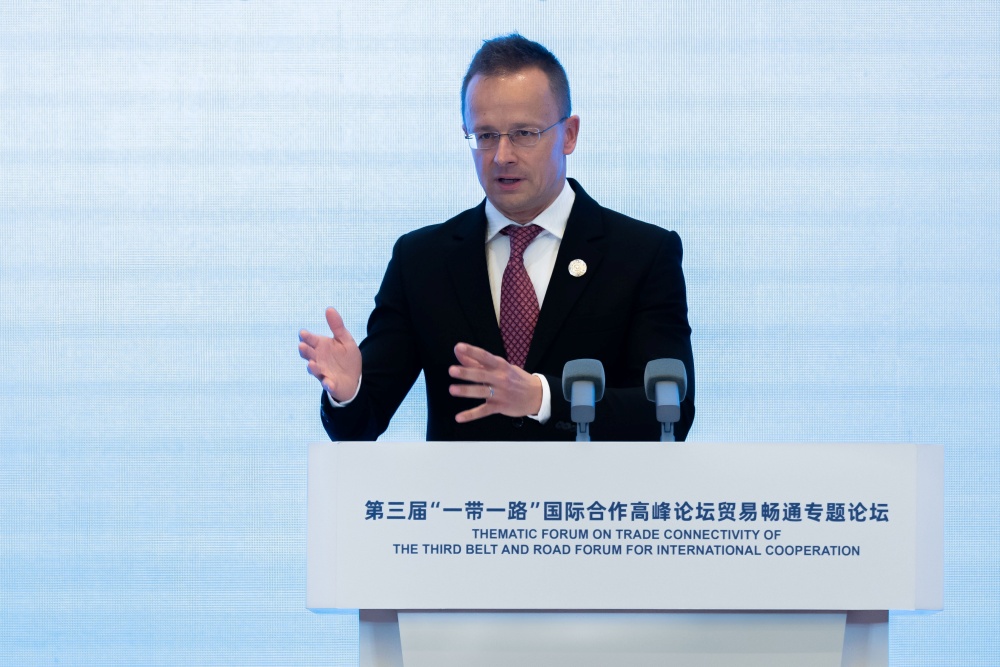
Szijjártó also reacted to the Estonian PM's comments on the meeting between Vladimir Putin and Viktor Orbán.Continue reading
The Hungarian government announced its policy of opening up to the East more than ten years ago, with the aim of easing the economy’s unilateral dependence on European markets. Although there has been little movement in trade flows since then, in reality there are several indications that re-exports may make the opening-up to the East more effective, reports Világgazdaság.
“We sail under the Western flag, but the wind is blowing in the East of the world economy,” is how Prime Minister Viktor Orbán announced his policy of opening up to the East after the change of government in 2010. Although he stressed that Hungary was part of Western civilization, he made it clear that anyone who did not take account of current trends would be shipwrecked. The prime minister’s assessment of the situation is likely to have been influenced by the 2008-2009 crisis that China hardly felt, in contrast to the Western world.
Although there is still no sign of any significant improvement in foreign trade, Dániel Molnár, analyst at the Makronóm Institute, believes that the economic success of opening to the East should not be measured solely in terms of bilateral trade figures.
The functioning of the world economy is much more complex than that, products usually reach consumers through production chains involving several countries,”
said the economist. He also stressed that the question is rather to what extent Hungarian companies have been able to integrate into these chains, taking advantage of the opportunities offered by the East. The latter was most easily achieved through German companies present in Hungary.
Regarding Germany, Zotlán Matheika, industry researcher at Kopint-Tark, told the news portal that “German industry has been heavily dependent on cheap Russian energy, and sustained dependence on it means sustained higher costs and lower competitiveness, which means a good chance of lower growth potential in the long term.” He added that the geopolitical polarization is also affecting Germany negatively because China is important for German industry both as a component of global value chains and as a buyer market.
On the other hand, the competition from Chinese firms is also intensifying, and
it is a warning sign that China is apparently better placed than the major German car manufacturers in the field of electromobility, which is making not only their global but also their European market position more precarious.”
The implementation of Plan A (greening/modernizing industrial capacity), a response to the current situation, is severely constrained not only by the sheer scale of the task but also by the German fiscal crisis, and Plan B is not very visible, the economic expert noted.
In Molnár’s opinion,
the success of opening-up to the East is clearly visible in the performance of firms established in Hungary in terms of capital attraction:
in 2010, according to Eurostat data, Chinese (including Hong Kong), Japanese, and South Korean companies were involved in the creation of EUR 1.07 billion of added value in Hungary.
By 2021, their economic contribution had already reached EUR 4.6 billion, meaning that in 2021, companies in these three countries accounted for 5.0 percent of the income generated by the corporate sector. In 2010, this share was only 2.3 percent, and is likely to have increased further based on announcements since then (CATL, BYD).
Via Világgazdaság, Featured image: Facebook/Council of the European Union